Reporter: International experience shows that a high-growth, sustainable, competitive and resilient economy cannot lack a strong domestic business community. How do you assess the potential of Vietnamese private enterprises today?
Mr. Nguyen Ngoc Hoa : Vietnamese private enterprises have been affirming their important role in the national economy. With about 1 million enterprises and more than 5 million individual business households, compared to international standards, Vietnamese private enterprises still have many limitations in terms of scale, management capacity, technology as well as access to capital.
But compared to itself 1-2 decades ago, Vietnamese private enterprises have made great strides, contributing about 51% of GDP, more than 30% of the state budget, creating more than 40 million jobs, accounting for more than 82% of the total workforce in the economy and contributing nearly 60% of total social investment capital.

This shows that the potential and dynamism of private enterprises are growing. If we know how to exploit them and in a favorable business environment, barriers are removed, private enterprises will quickly rise and become the most important pillar of the economy.
In fact, in recent times, private enterprises have had many favorable conditions for development. That is the business opportunity in the large domestic market of more than 100 million people, with free trade connections with the international market. Vietnam has currently participated in 20 Free Trade Agreements (FTAs) with most of the world's major markets.
Vietnam's economy has recently been developing at a strong pace, moving towards a new era of openness and having huge public investment resources; the policy of digital transformation and green transition is a trend and driving force that has a positive impact on development.
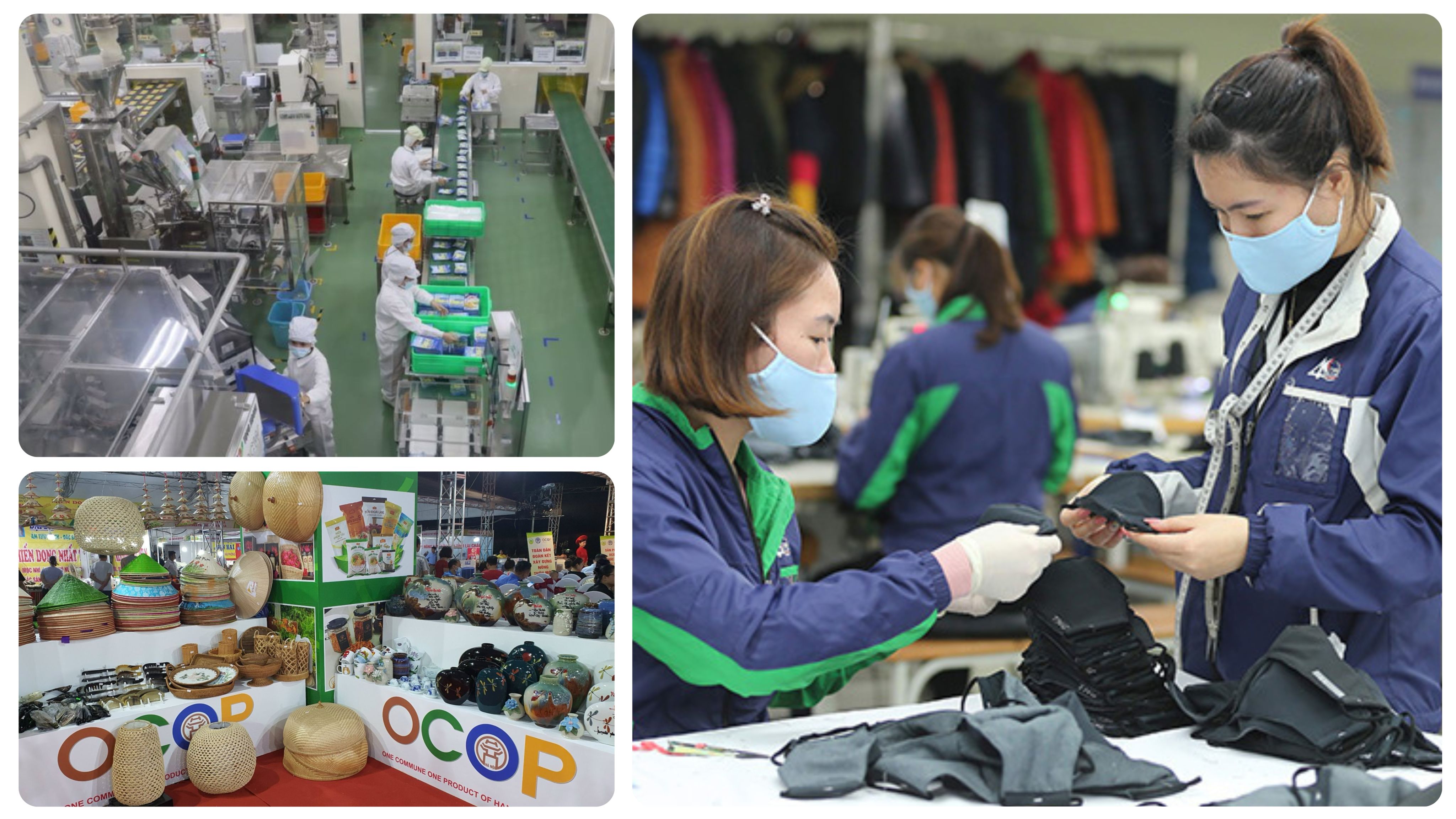
Private enterprises have many favorable conditions for development.
Private enterprises have also accumulated experience through many generations of entrepreneurs, with solidarity, cohesion, and gathering by business and industry associations. In particular, Vietnamese entrepreneurs are very diligent, hard-working, eager to learn, and always have the spirit to strive for success.
However, there are also many major challenges that are hindering the development of private enterprises. Specifically, our country's legal system still has many shortcomings and overlaps, the business environment has many obstacles, and administrative procedures are complicated. Many private enterprises feel that they do not have full freedom of business, and some are concerned about the criminalization of civil and economic relations.
On the other hand, private enterprises have not been given priority in accessing resources such as land and capital; and have not enjoyed full preferential and support policies like state-owned enterprises or foreign-invested enterprises (FDI).
Private enterprises are also lacking high-quality labor, while digital transformation and high-tech manufacturing require skilled human resources, but private enterprises still face difficulties in training and recruiting. Not only that, Vietnamese private enterprises also face fierce competition from foreign enterprises and multinational corporations.
Reporter: In recent speeches, General Secretary To Lam emphasized that despite many limitations, the private economy is the most important driving force to promote national economic growth and directed the need to change thinking, awareness, behavior as well as specific actions and policies towards this important economic sector; at the same time, there must be a clear strategy for the development of the private economy, in line with the current development level of the economy. In that context, what do businesses in Ho Chi Minh City expect from the Resolution on private economic development that the Politburo plans to issue in the near future?
Mr. Nguyen Ngoc Hoa: We expect that with the General Secretary's decisive reform, strong leadership and vision, the new Resolution will create a more open mechanism, removing bottlenecks such as: Equality in access to capital, land, technology, and markets; reducing administrative procedures, creating a transparent and favorable business environment.
HUBA hopes that the new Resolution will have a clear strategic orientation on the role of the private economy in a socialist-oriented market economy; have long-term support policies to help private enterprises develop sustainably, ensuring that private enterprises not only grow in quantity but also improve quality and position in the global value chain.

HUBA proposed in the Resolution that it is necessary to develop a policy of equality between private enterprises and state-owned enterprises and FDI. Accordingly, any incentives available to state-owned enterprises should be accessible to all private enterprises; incentives on taxes, land rents, etc. for FDI should also be applied to private enterprises; inspections and other standards (environment, fire prevention, fire fighting, etc.) for private enterprises should not be stricter than those for state-owned enterprises and FDI. The State should minimize inspections of private enterprises.
In addition, it is necessary to abolish the regulation requiring private enterprises to conduct annual tax audits. For small and micro private enterprises with weak management skills and limited capital, it is necessary to apply management policies, especially the simplest tax management, which is easy to implement, less costly, and prioritizes administrative handling as well as compensation instead of criminal handling. In addition, the Resolution needs to develop a mechanism to assign responsibility to heads of state management agencies who do not respond to complaints and recommendations from enterprises.
With the current wave of Chinese goods and cheap goods from Southeast Asian countries flooding the domestic market, HUBA proposes that there should be a trade protection policy to protect domestic production; at the same time, strengthen the campaign "Vietnamese people prioritize using Vietnamese goods".
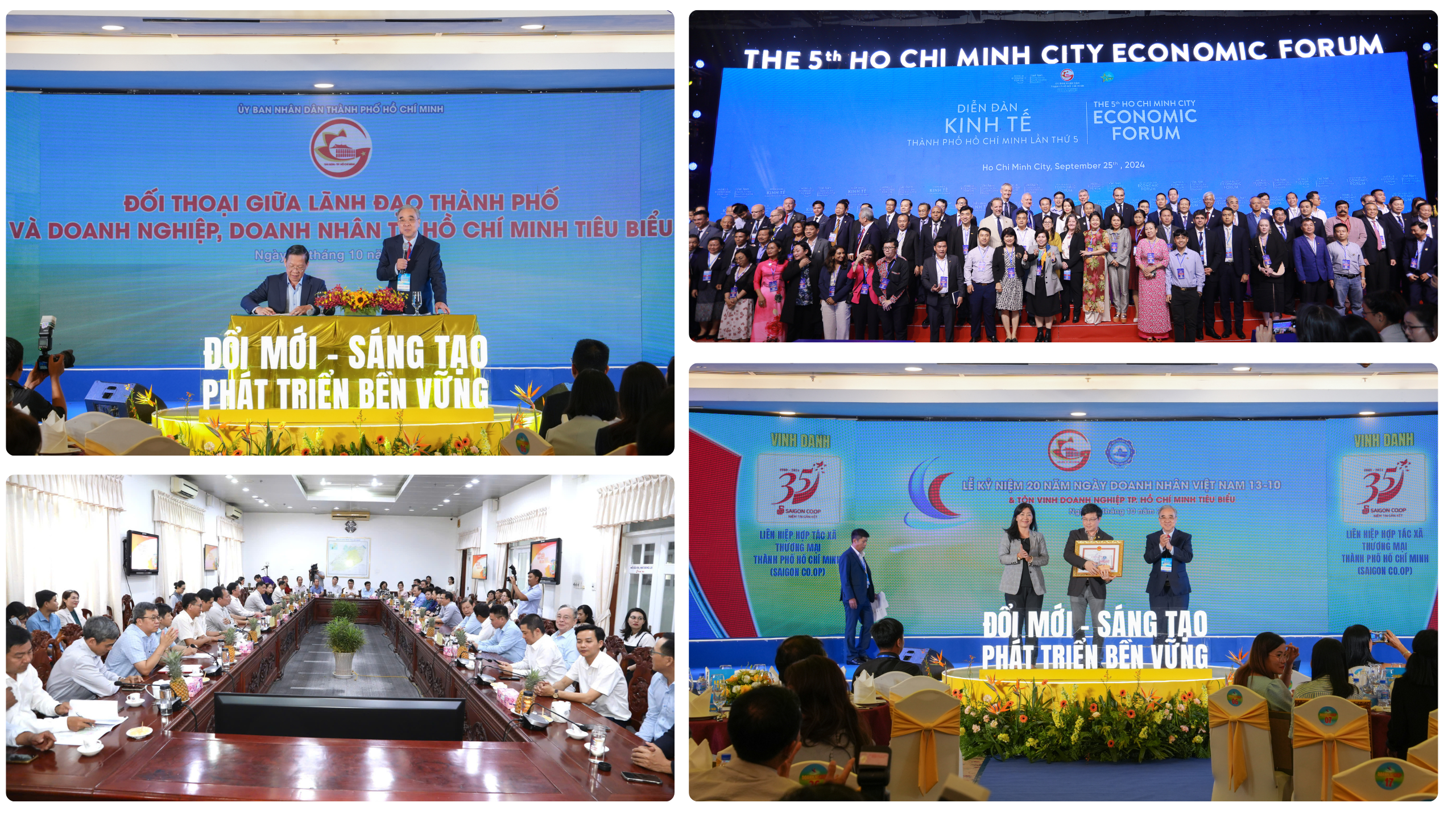
HUBA implements many trade and investment promotion activities, supporting business connections.
To create a market for private enterprises, HUBA recommends that public projects must use over 50% Vietnamese products and have over 50% Vietnamese private enterprises participating. The State also needs to issue and effectively implement the policy of "building nests to welcome eagles" and have strong, breakthrough solutions to encourage Vietnamese private enterprises to participate in the supporting industry.
Reporter: In recent years, the business environment has undergone many reforms but there are still major limitations that affect the development of the business community. The government is focusing on institutional reform, considering it a “breakthrough of breakthroughs” to unlock resources in society. From the perspective of businesses, what specific issues should institutional reform focus on?
Mr. Nguyen Ngoc Hoa : From a business perspective, institutional reform needs to focus on three core issues:
First, improve the legal environment by simplifying investment licensing, business registration and tax procedures.
Second, reduce barriers to capital access, increase transparency in credit approval, and continue to improve credit guarantee funds to substantially support small and medium enterprises.
Third, improve the effectiveness of the legal system to protect intellectual property rights, combat commercial fraud and ensure fair competition.
The law needs to clearly identify the role of the state in the economy as creating development, not participating in economic relations and building an administration that "serves businesses - serves the country". The construction of the judicial system needs to be truly transparent, objective, fair, not criminalizing civil, economic, and commercial relations; giving priority to the use of administrative and civil law to resolve economic disputes instead of criminal proceedings to minimize costs and risks for businesses.
Finally, the State needs to develop fair incentive policies to encourage the private economy to easily access the country's resources in order to exploit and optimally use these resources.
Reporter: Thank you very much!
Publication date: 20/3/2025
Content: TO HA - VIET HAI
Performed by: XUAN BACH - PHUONG NAM
Nhandan.vn
Source: https://special.nhandan.vn/Thoi-diem-de-doanh-nghiep-tu-nhan-but-pha/index.html





![[Photo] Chinese, Lao, and Cambodian troops participate in the parade to celebrate the 50th anniversary of the Liberation of the South and National Reunification Day](https://vphoto.vietnam.vn/thumb/1200x675/vietnam/resource/IMAGE/2025/4/30/30d2204b414549cfb5dc784544a72dee)
![[Photo] The parade took to the streets, walking among the arms of tens of thousands of people.](https://vphoto.vietnam.vn/thumb/1200x675/vietnam/resource/IMAGE/2025/4/30/180ec64521094c87bdb5a983ff1a30a4)


![[Photo] Cultural, sports and media bloc at the 50th Anniversary of Southern Liberation and National Reunification Day](https://vphoto.vietnam.vn/thumb/1200x675/vietnam/resource/IMAGE/2025/4/30/8a22f876e8d24890be2ae3d88c9b201c)











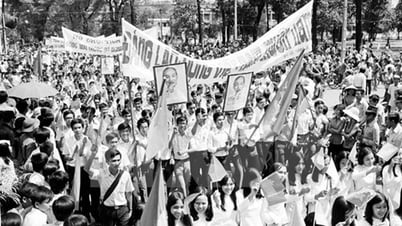
















![[Photo] The parade took to the streets, walking among the arms of tens of thousands of people.](https://vphoto.vietnam.vn/thumb/402x226/vietnam/resource/IMAGE/2025/4/30/180ec64521094c87bdb5a983ff1a30a4)
![[Photo] Performance of the Air Force Squadron at the 50th Anniversary of the Liberation of the South and National Reunification Day](https://vphoto.vietnam.vn/thumb/1200x675/vietnam/resource/IMAGE/2025/4/30/cb781ed625fc4774bb82982d31bead1e)















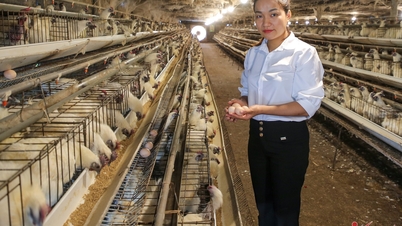





















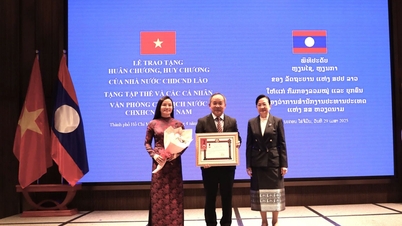

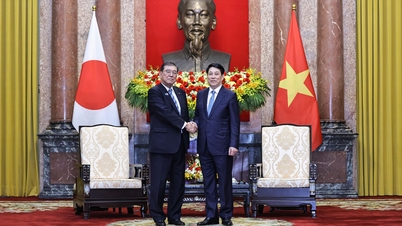





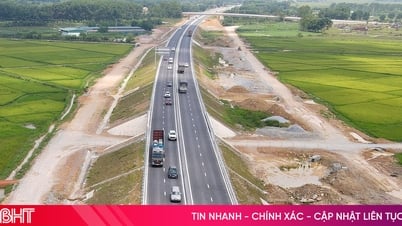
















Comment (0)